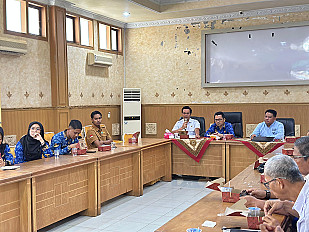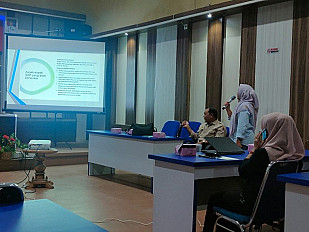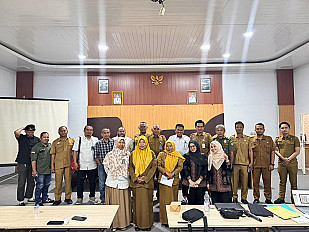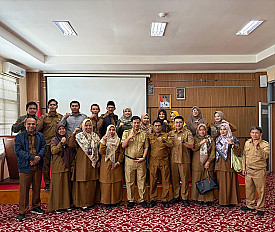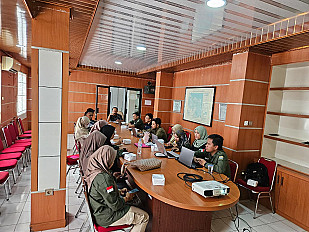News
42
Karak Apung Village's Independent Floating Farmers Group: Building Independence through Social Forestry
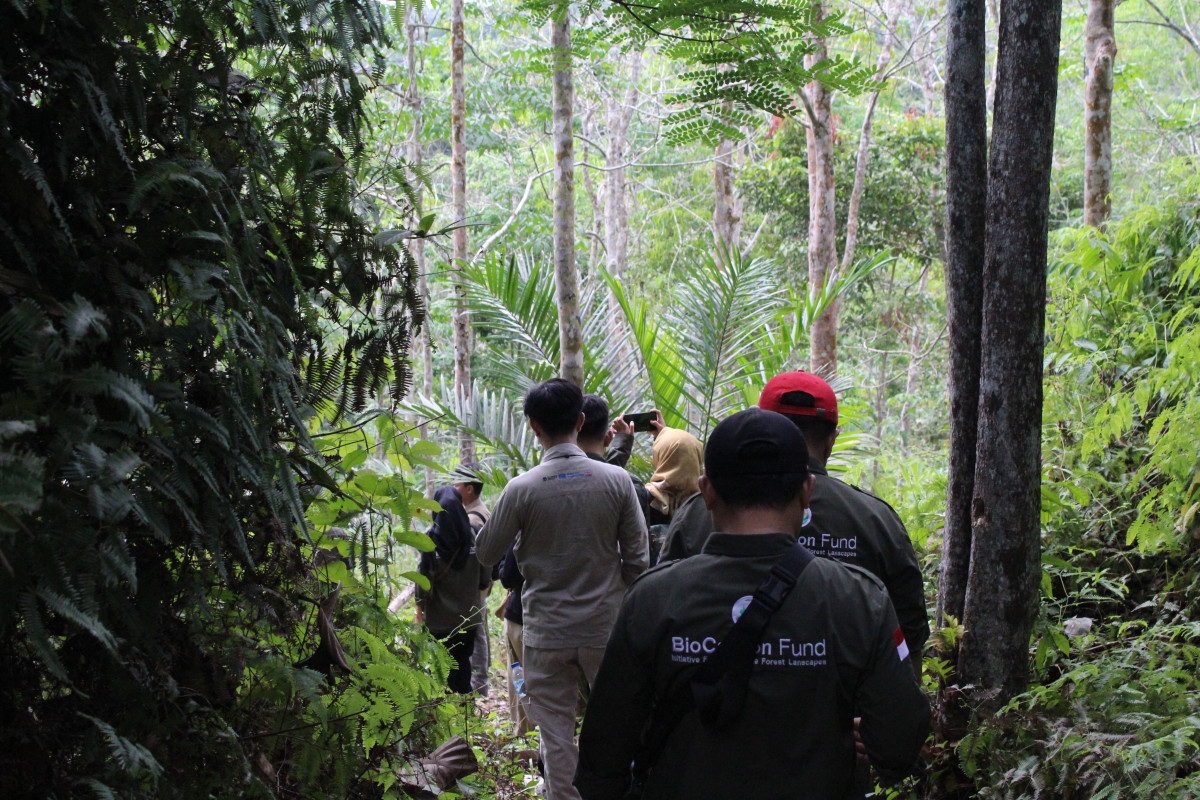
Portal BIOCF
Wednesday, 15 May 2024 Post 12:05 AM
Karak Apung Village, located in Bungo Regency, Jambi Province, is a clear example of the successful implementation of the Social Forestry program. Through the Apung Mandiri Farmers Group (Gapoktan), the local community is gradually building economic independence and preserving the environment through forest and land rehabilitation (RHL)-based agricultural activities.
The majority of Gapoktan Apung Mandiri members depend on fruit crops such as coconut, durian, areca nut, and avocado for their livelihoods. These commodities are not only their primary source of income but also part of a sustainable agricultural strategy that the community continues to develop amidst land dynamics and limited access.
The RHL activities carried out in this village are part of the Bungo KPHP program and are conducted in an area classified as transmigration land and within the Social Forestry area. In accordance with the provisions of the Ministry of Environment and Forestry (KLHK), support provided through the Social Forestry scheme is limited to the provision of plant seedlings, without covering the costs of the planting process.
The community's planting efforts were also carried out strategically. Initially, some of the land was planned to be converted to oil palm plantations, but the plan encountered technical challenges. Oil palm and rubber plants are known to compete for nutrients, which can ultimately reduce the productivity of both crops. As a solution, the community decided to intersperse the planting with fruit trees, thus maintaining plant diversity and land productivity.
The journey to recognition of management rights through the Social Forestry scheme was not smooth. In 2019, the process experienced conflict with several upper-class community groups in Bungo Regency. However, through collective struggle and the appropriate legal approach, the Karak Apung community successfully defended their rights to the area.
The success in obtaining Social Forestry permits was also due to the innovative approach employed by the Ministry of Environment and Forestry in the Jambi region, namely the jareng gebol (joint, proactive, collaborative) method. This approach expedited the application process because officers went directly to the field, gathered the community, conducted outreach, assisted in the preparation of proposals, and carried out expeditious reviews and revisions. In this way, the time required to obtain a management permit is usually less than one year.
The Apung Mandiri Farmers Group (Gapoktan Apung Mandiri) is no longer just an ordinary farming group. They are a symbol of successful collaboration between the community, government, and nature. With a spirit of mutual cooperation and innovation in land management, the Karak Apung community has proven that environmentally friendly and sustainable agriculture is not a dream, but a reality that can be achieved together.
The majority of Gapoktan Apung Mandiri members depend on fruit crops such as coconut, durian, areca nut, and avocado for their livelihoods. These commodities are not only their primary source of income but also part of a sustainable agricultural strategy that the community continues to develop amidst land dynamics and limited access.
The RHL activities carried out in this village are part of the Bungo KPHP program and are conducted in an area classified as transmigration land and within the Social Forestry area. In accordance with the provisions of the Ministry of Environment and Forestry (KLHK), support provided through the Social Forestry scheme is limited to the provision of plant seedlings, without covering the costs of the planting process.
The community's planting efforts were also carried out strategically. Initially, some of the land was planned to be converted to oil palm plantations, but the plan encountered technical challenges. Oil palm and rubber plants are known to compete for nutrients, which can ultimately reduce the productivity of both crops. As a solution, the community decided to intersperse the planting with fruit trees, thus maintaining plant diversity and land productivity.
The journey to recognition of management rights through the Social Forestry scheme was not smooth. In 2019, the process experienced conflict with several upper-class community groups in Bungo Regency. However, through collective struggle and the appropriate legal approach, the Karak Apung community successfully defended their rights to the area.
The success in obtaining Social Forestry permits was also due to the innovative approach employed by the Ministry of Environment and Forestry in the Jambi region, namely the jareng gebol (joint, proactive, collaborative) method. This approach expedited the application process because officers went directly to the field, gathered the community, conducted outreach, assisted in the preparation of proposals, and carried out expeditious reviews and revisions. In this way, the time required to obtain a management permit is usually less than one year.
The Apung Mandiri Farmers Group (Gapoktan Apung Mandiri) is no longer just an ordinary farming group. They are a symbol of successful collaboration between the community, government, and nature. With a spirit of mutual cooperation and innovation in land management, the Karak Apung community has proven that environmentally friendly and sustainable agriculture is not a dream, but a reality that can be achieved together.
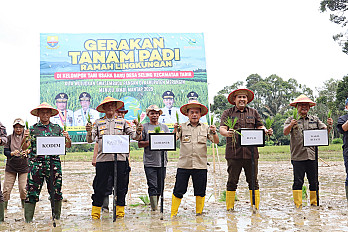
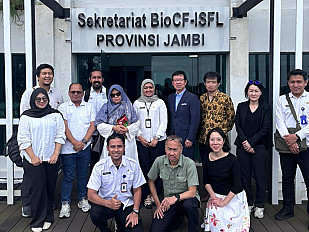
-thumb.jpg)
